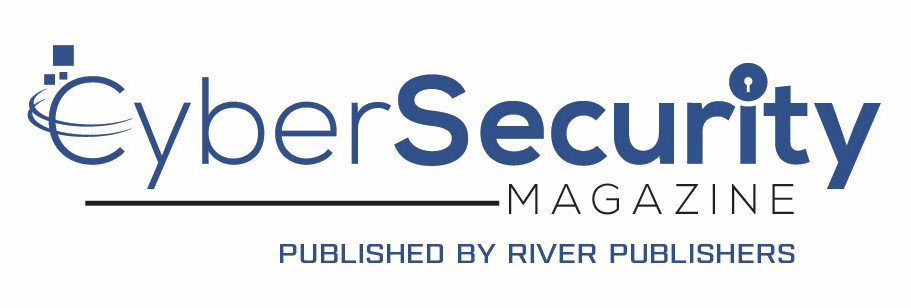Thwarting Supply Chain Cyber Attacks
In recent years, third-party breaches have gained significant attention, with high-profile incidents such as the Okta and MOVEit hacks highlighting the vulnerabilities that exist within the web of suppliers and partners that businesses rely on.
Organisations often have limited visibility and control over their extended network, making it challenging to ensure the security of data and systems beyond their immediate reach.
Additionally, supply chain information security faces vulnerabilities such as inadequate supplier security practices, weak authentication mechanisms, outdated software, and even potential supply chain disruptions caused by natural disasters or geopolitical events.
For UK businesses, the risks associated with these attacks are mounting as supply chains become more complex and digitised than ever before. Cybercriminals are exploiting these complexities to target the weakest links, resulting in a surge in cyber incidents. This means that a breach in one organisation can have cascading effects on multiple entities within the chain, amplifying the potential harm, disrupting operations and compromising the trust of customers and stakeholders.
Recent findings from ISMS.online’s ‘State of Information Security’ report underscore the gravity of the situation. The report reveals that 79% of UK businesses experienced security incidents stemming from their supply chain or third-party vendors in the past year—a dramatic 22% increase from the previous year. Perhaps even more concerning, 41% of these businesses saw partner data compromised. This growing trend highlights the urgent need for organisations to re-evaluate their security strategies and take concrete steps to bolster their defences.
The growing threat of supply chain attacks
The interconnected nature of supply chains creates both opportunity and risk. Businesses increasingly rely on third-party vendors for everything from cloud storage to software services. While these interconnections drive efficiencies and cost savings, they also expand the potential attack surface. Cybercriminals are well aware of this dynamic, targeting smaller, less secure vendors as a gateway into larger, more lucrative organisations in what’s known as “island-hopping.”
The global nature of many supply chains further complicates security efforts. Different regions have varying cybersecurity regulations and standards, making enforcing uniform security measures across all partners difficult. Attackers exploit these inconsistencies, often focusing on less-regulated jurisdictions to launch their attacks. The Okta breach, for example, saw hackers compromise a third-party contractor’s systems to gain access to sensitive customer support data.
The stakes are high. Breaches in the supply chain can lead to significant financial, reputational, and operational damage. ISMS.online’s research found that 70% of UK businesses have faced fines for data breaches in excess of £100,000, with the average fine amount rising to £258,000. The urgency to act has never been more apparent.
ISO 27001 – the backbone of supply chain strategies
The rise in supply chain attacks necessitates a comprehensive approach to cybersecurity. The first line of defence lies in carefully vetting suppliers and partners before establishing relationships. Businesses should assess the cybersecurity measures of potential partners, scrutinising their security history and compliance with relevant standards such as ISO 27001. Importantly, this should be an ongoing process, with regular re-evaluations of partners’ security postures.
Adopting established frameworks such as Cyber Essentials and ISO 27001 can help businesses structure their cybersecurity efforts. The UK’s National Cyber Security Centre (NCSC) also offers Supply Chain Security Guidance, which provides comprehensive recommendations for managing third-party risks. These standards provide a clear roadmap for securing supply chains, helping businesses mitigate vulnerabilities in a systematic way.
ISO 27001 requires businesses to maintain records of all third-party interactions, including risk assessments, security requirements stipulated in contracts, and ongoing performance monitoring.
Clearly defined cybersecurity expectations should be a cornerstone of all partnership agreements. Contracts should outline specific security requirements, regular security reporting obligations, and clear incident response procedures. Penalties or termination clauses for non-compliance with security standards can also serve as strong incentives for vendors to maintain rigorous security measures. Using the ISO 27001 framework helps lay the foundations for rigorous partner and supplier vetting processes, robust partnership agreements, and a culture of continuous improvement.
Looking on the inside
Equally, while it’s crucial to hold third-party vendors to high standards, businesses must also look inward. Strengthening internal security protocols and ensuring they extend to the entire supply chain can help mitigate risks. This includes conducting regular security audits, implementing multi-factor authentication, encrypting sensitive data, and developing robust incident response plans specifically tailored to supply chain breaches.
When looking internally, it’s important to remember that employees remain one of the most critical components of any organisation’s defence. Comprehensive training programs that cover phishing recognition, data handling best practices, and procedures for reporting suspicious activity are essential. Businesses should also emphasise awareness of supply chain-specific threats to ensure that employees are equipped to respond appropriately to evolving risks.
This training should extend to new and emerging technologies such as artificial intelligence (AI) and machine learning (ML). AI-driven tools are exploding and can enhance threat detection and automate responses to potential breaches, improving both speed and accuracy. ML can also help identify anomalies in the supply chain, flagging potential vulnerabilities before attackers can exploit them.
Perhaps the most important step in shoring up defences is creating a security-conscious culture. This involves making cybersecurity a board-level priority, encouraging open dialogue about potential threats, and recognising employees who demonstrate strong security practices. A culture that prioritises security not only improves resilience but also fosters trust among partners and customers.
The road ahead may be challenging, but with increased investment in supply chain security, UK businesses can strengthen their defences and reduce the risk of cyber attacks. According to ISMS.online’s research, nearly 38% of UK companies plan to increase their cybersecurity budgets by up to 25% in the coming year. This is a positive step towards building a more resilient and secure digital ecosystem.
Supply chain security is not just an IT concern; it’s fundamental across the business. By taking proactive steps such as implementing an ISMS based on ISO 27001, organisations can strengthen their supply chain risk management practices and safeguard their operations to protect themselves from the growing threat of supply chain cyber-attacks.


